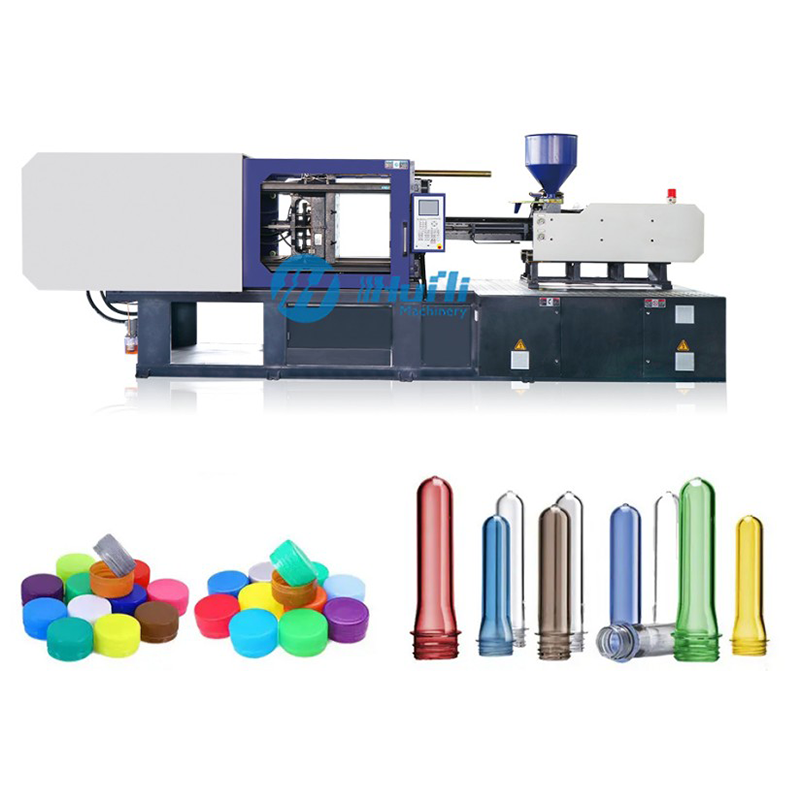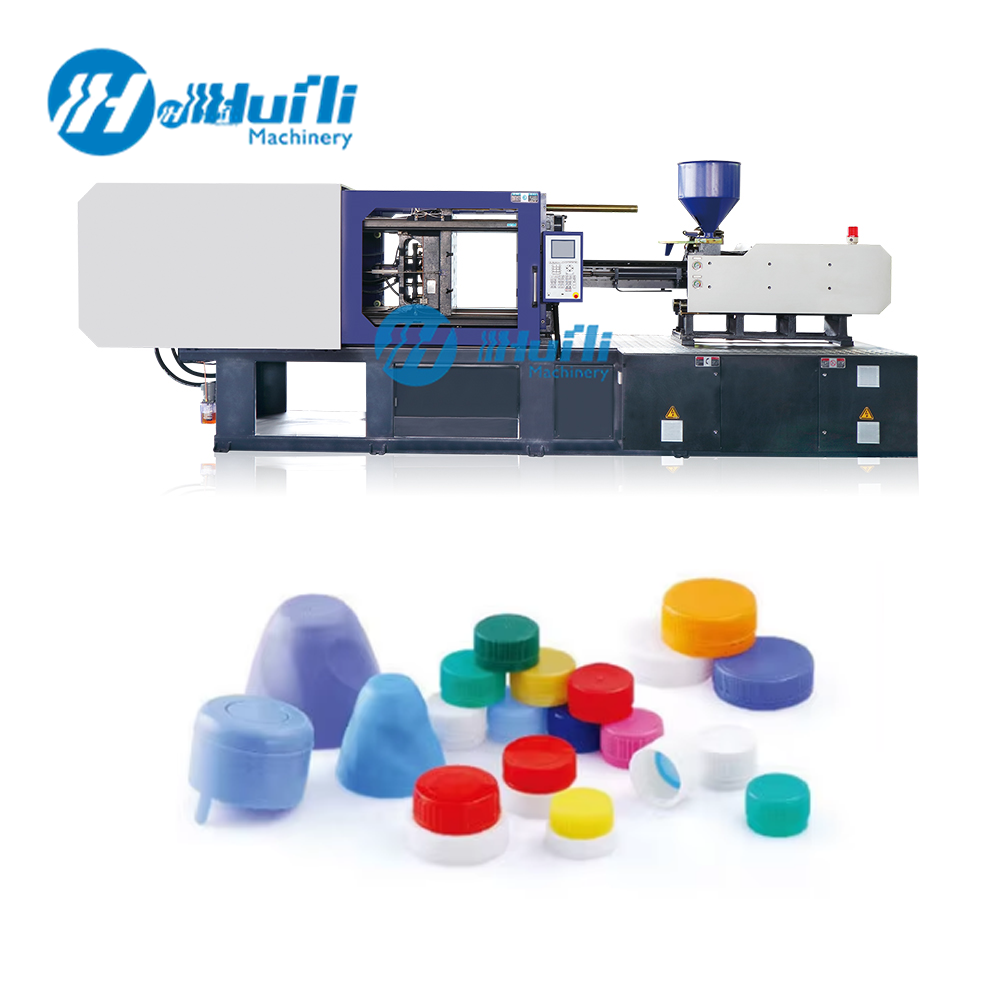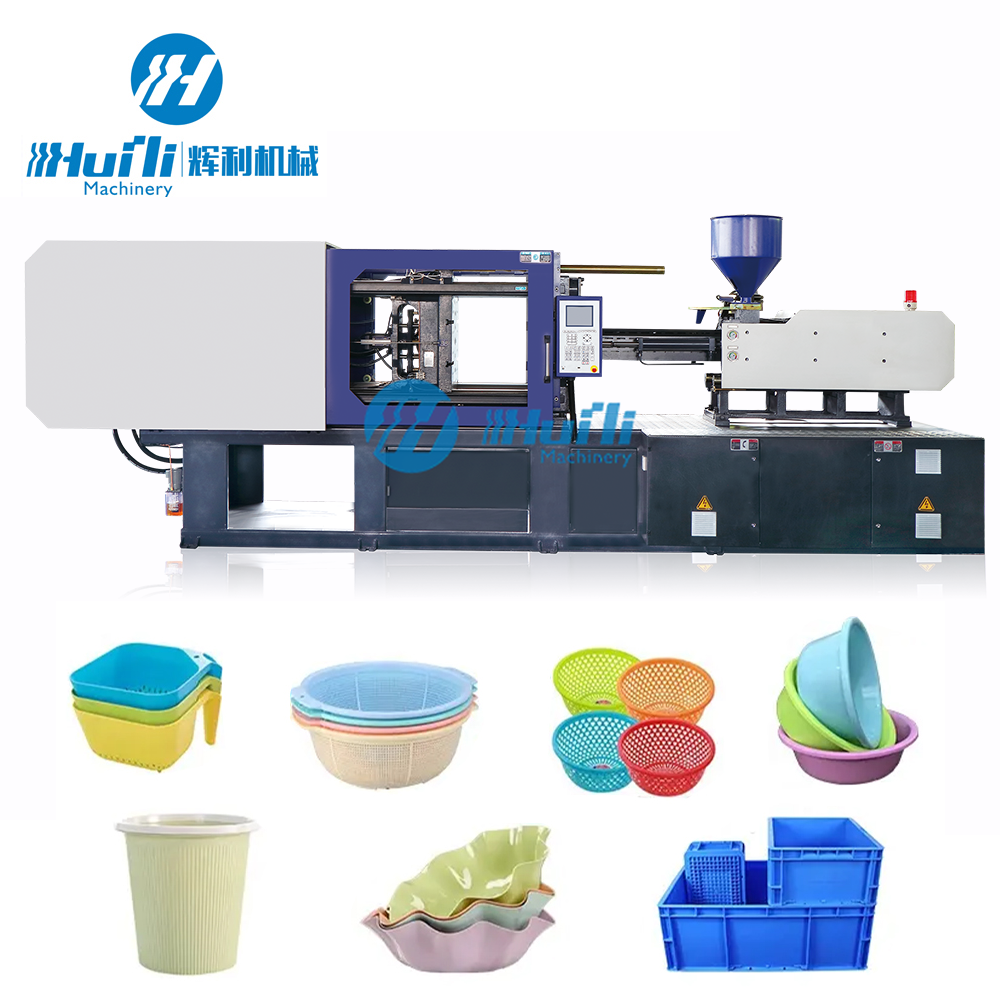The Future of Injection Molding Machines in the Plastic Manufacturing Industry
Integration of IoT and AI for Precision Manufacturing
The integration of IoT and AI has revolutionized precision manufacturing in injection molding. IoT enhances real-time monitoring capabilities, allowing for the meticulous tracking of injection molding machine operations. This improvement facilitates proactive adjustments and optimizes throughput. Meanwhile, AI algorithms are utilized for predictive maintenance, significantly reducing downtime for plastic molding machines. By analyzing patterns and detecting anomalies before they develop into significant issues, AI ensures consistent production quality. Case studies highlight remarkable enhancements in precision and waste reduction through these technologies. For instance, smart manufacturing solutions have been pivotal in minimizing material waste — a crucial aspect in an increasingly eco-conscious industry.
Industry 4.0 Automation in Plastic Injection Processes
Industry 4.0 has ushered in a new era for the plastic injection sector by interconnecting machinery, creating smarter and more automated processes. This digital transformation, part of the broader automation trend, improves efficiency and product quality in manufacturing. Examples abound of automated systems enhancing production speeds, such as through the use of robotic arms in the injection molding machine operations. Statistics from a recent industry report indicate substantial improvements in both production speeds and cost reductions, directly linked to these advancements. Automated injection molding processes, integral to plastic manufacturing automation, are redefining industry expectations and setting new benchmarks for future developments.
Modular Designs for Enhanced Flexibility
Modular designs are defining a new standard in injection molding machines by offering improved flexibility and customization in production lines. These designs allow manufacturers to rearrange or alter specific modules to cater to varying production needs, enabling customizable machine setups. This adaptability leads to greater operational efficiency as manufacturing lines can swiftly adjust to different product specifications without extensive retooling. Insights from manufacturers utilizing modular injection molding systems reveal significant benefits, such as reduced lead times and increased responsiveness to client demands. As a result, modular and flexible manufacturing solutions are becoming increasingly popular among those seeking to meet diverse industrial requirements without compromising on quality or speed.
Recycling-Compatible Plastic Injection Machines
Recycling-compatible plastic injection machines are at the forefront of sustainable manufacturing. These innovative machines are designed to efficiently process and mold recycled plastics, thereby reducing the dependency on virgin materials. Such efforts have significantly contributed to landfill waste reduction. Recent studies show that integrating recycling-compatible machines in manufacturing processes can drastically cut down waste, even by up to 60%. Several companies, including major industry players, have successfully implemented these machines, thus setting a benchmark for eco-friendly production practices.
Energy-Saving Hydraulic Systems
Energy-saving hydraulic systems are transforming the injection molding industry by optimizing resource utilization. These systems work by employing energy-efficient components and technologies to minimize power consumption without compromising performance. Case studies indicate that facilities adopting these hydraulic systems can experience up to 40% reductions in energy consumption. This energy efficiency not only reduces operational costs but also substantially lessens the environmental impact, aligning with global sustainability goals. The integration of such technology underscores the importance of energy savings, thus benefiting both economic and ecological aspects.
Eco-Friendly Material Handling Solutions
The shift towards eco-friendly material handling solutions in injection molding is driven by the need for sustainable manufacturing processes. By incorporating biodegradable materials and green technologies, manufacturers are enhancing their operational efficiency while supporting environmental conservation. Transitioning to these eco-friendly materials has shown to improve productivity and reduce waste, as evidenced by market trends favoring green materials. The adoption of sustainable processes in the industry reflects a significant drive towards meeting consumer demand for environmentally responsible products, ensuring a long-term positive impact on the planet.
5 Gallon PET Preform Plastic Injection Molding Machine
PET preform injection molding is revolutionizing large-scale plastic production with its enhanced efficiency and speed. The 5 Gallon PET Preform Plastic Injection Molding Machine is particularly valuable for the beverage industry, which has seen an increased demand due to rising consumer preferences for bottled products. This machine is equipped with technical specifications that enhance production quality, utilizing modular designs to offer accurate and stable injection processes. Furthermore, its five-pivot toggle mechanism ensures rigidity and strength, making it ideal for consistent and high-quality preform production on a large scale.
300-Ton Automated Horizontal Injection Molding Machine
The 300-ton Automated Horizontal Injection Molding Machine stands out in the field of large-scale plastic manufacturing due to its significant capacity and precision. This capacity is beneficial for industries dealing with large-volume products, such as automotive and heavy equipment manufacturing. Its automated features considerably enhance precision, reducing human error and subsequently boosting productivity. Notably, statistics show increased efficiency and reduced waste by utilizing these automated horizontal machines, effectively bridging the gap between high production needs and resource optimization.
High-Speed Bottle Cap Injection Machine
The High-Speed Bottle Cap Injection Machine is engineered to deliver remarkably quick cycle times, meeting the increased market demand for bottle caps. This machine's efficiency is attributed to technical innovations that maintain high speed without compromising product quality. Market analysis has shown a steady growth in demand for bottle caps, driven by the beverage and packaging industries. The machine’s ability to achieve high throughput rates makes it a vital asset in maintaining competitiveness in fast-paced production environments.
Versatile Daily-Use Product Molding Systems
Versatile Daily-Use Injection Machines are redefining product diversity in everyday consumer goods. These systems allow manufacturers to efficiently produce a wide range of products, enhancing market reach through flexible design capabilities. Case studies have shown how their adaptability supports various applications from household to industrial use. Technological advancements, such as modular injection systems and user-friendly interfaces, support diverse manufacturing processes, proving indispensable for businesses looking to expand into multiple markets with one machine solution.
Asia-Pacific's Dominance in Plastic Molding Production
Asia-Pacific is a powerhouse in global plastic molding, contributing a significant portion of the industry's production output. This dominance is reflected in the region's 44% market share in 2023 and is supported by several key factors. The rapid population growth in countries like China and India drives higher consumption of consumer goods, therefore increasing demand for injection molding services. With technological advancements and a skilled labor force, Asia-Pacific caters to industries ranging from automotive to electronics, utilizing injection molding to produce complex parts efficiently.
Predictions for the region's market expansion are optimistic, driven by supportive government policies fostering industrial innovation. These policies include infrastructure development incentives and foreign investment encouragement, which collectively enhance the manufacturing landscape. The rising disposable income of Asia-Pacific's middle-class fuels an ever-growing demand for high-quality, injection-molded goods like automotive components and consumer electronics. This, in turn, boosts the region's production capacity, reinforcing its global leadership in the plastic molding sector.
North America's Shift Toward Smart Manufacturing
North America is experiencing a significant shift toward smart manufacturing, where advanced technology plays a pivotal role in enhancing production processes. The region's injection molding industry has embraced automation and digital transformation to remain competitive in the global arena. Smart manufacturing not only improves operational efficiency but also sharpens competitive advantages by reducing costs and increasing precision in production.
Statistical evidence reveals a notable increase in smart manufacturing investments across North American industries. Companies are integrating technologies such as IoT and AI in their production lines, propelling a move towards more efficient and sustainable manufacturing practices. These technology-driven approaches improve overall productivity and offer insights into operational bottlenecks, thus creating a substantial competitive edge for businesses aiming to dominate the market. This shift not only boosts North America's production capabilities but also solidifies its position as a leader in technological innovation.
Europe's Regulatory-Driven Sustainability Push
Europe's injection molding industry is heavily influenced by stringent sustainability regulations which serve as a catalyst for technological adoption and market dynamics. European regulations target eco-friendly practices across industries, pushing manufacturers to adopt sustainable materials and processes. These regulations have not only impacted market dynamics but also prompted a rise in eco-conscious consumer choices.
Compliance with these regulations is driving manufacturers to integrate sustainable practices into their production lines. Recent trends indicate a significant shift towards the use of biodegradable and recyclable materials in injection molding. This trend not only supports environmental sustainability but also aligns with European consumers' growing preference for green products. As a result, the European market is witnessing an increase in demand for eco-friendly injection molded products, fostering growth and innovation within the industry. Such regulatory pressure ensures that sustainability remains at the forefront of manufacturing processes across Europe.
Electric vs Hydraulic Injection Machines: Performance Comparison
Electric and hydraulic injection machines offer distinct benefits in efficiency and cost-effectiveness for molding operations. Electric injection machines are renowned for their high precision, quick cycle times, and energy efficiency, which typically result in lower operational costs compared to hydraulic machines. In contrast, hydraulic machines, although often less expensive upfront, are praised for their robustness and ability to handle large-scale productions with high clamping forces. A study from NPE2024 highlights the preferences among users, with many citing efficiency improvements using electric machines. Statistics show electric machines can reduce energy consumption by up to 30%, making them increasingly attractive for companies focused on sustainability.
22-55% Power Reduction Through Advanced Controls
Advanced control mechanisms in molding equipment enable substantial power savings, with potential reductions ranging from 22% to 55%. These controls optimize energy consumption by precisely regulating machine operations, thus minimizing waste and improving efficiency. Data from prominent manufacturers illustrate significant drops in energy usage following the adoption of these technologies. Adopting energy-efficient technologies not only conserves resources but also translates into considerable operational savings, affirming the importance of investment in such innovative controls.
Low-Noise Operations for Improved Workplace Environments
Low-noise injection molding machines are critical for enhancing workplace environments by promoting safety and comfort. These machines contribute significantly to employee productivity, as excessive noise can lead to distractions and stress. Studies indicate that quieter machines can improve worker concentration and efficiency, resulting in increased output quality. Research conducted by the European Agency for Safety and Health at Work highlights the positive correlation between reduced noise levels and enhanced performance. As a result, investing in low-noise machinery is not only beneficial for workplace health but also pivotal in optimizing manufacturing processes.










